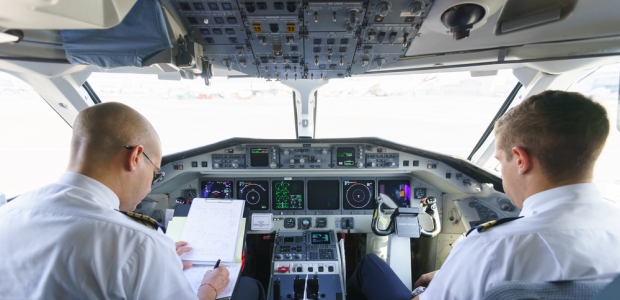
Boeing Sees 'Unprecedented' 20-Year Demand for New Pilots
Both Boeing and Airbus forecast very strong demand for commercial airline pilots during the next two decades. The aviation industry faces a pilot labor supply challenge, says Keith Cooper, vice president of Training & Professional Services for Boeing Global Services.
Boeing this week released its 2018 Pilot & Technician Outlook. In it, the aircraft manufacturer forecasts what it calls "unprecedented" demand for 790,000 pilots during the next 20 years, adding, "This represents double the current workforce and the most significant demand in the outlook's nine-year history."
The demand is being driven by an anticipated doubling of the global commercial airplane fleet, record-high air travel demand, and a tightening labor supply. This year's outlook also includes data from the business aviation and civil helicopter sectors for the first time. Combined, those two sectors will demand an additional 155,000 pilots and 132,000 maintenance technicians during the period.
"Despite strong global air traffic growth, the aviation industry continues to face a pilot labor supply challenge, raising concern about the existence of a global pilot shortage in the near term," said Keith Cooper, vice president of Training & Professional Services for Boeing Global Services. "An emphasis on developing the next generation of pilots is key to help mitigate this. With a network of training campuses and relationships with flight schools around the globe, Boeing partners with customers, governments, and educational institutions to help ensure the market is ready to meet this significant pilot demand."
Demand for maintenance technicians is forecast to decrease slightly, from 648,000 to 622,000, primarily due to longer maintenance intervals for new aircraft. The demand for commercial cabin crew will increase slightly, from 839,000 to 858,000, because of changes in fleet mix, regulatory requirements, denser seat configurations and multi-cabin configurations that offer more personalized service, according to Boeing, and 32,000 new cabin crew will be required to support business aviation.
Meanwhile, Airbus' latest Global Services Forecast predicts a total of 540,000 new pilots will be needed during the next two decades. On July 26, the French manufacturer launched the Airbus Pilot Cadet Training Programme in partnership with Escuela de Aviacion Mexico, which is located near the Airbus Mexico Training Centre. After completing their initial training with EAM, cadets will qualify at the Airbus Mexico Training centre to become Airbus A320 pilots. Airbus' announcement said the company "will leverage its EASA-based programme to offer an innovative, high-quality and cost-effective ab initio training. Airbus customers will be able to delegate pilot screening activities and to recruit competent pilots trained to global harmonized standards."
The program will be open to people older than 18 who have graduated from high school. Candidates will undergo screening tests online and on site; the first batch of Airbus cadets is expected to start training in January 2019 and to graduate in July 2020. "Similar partnerships are planned across the globe over the coming years," the announcement said.